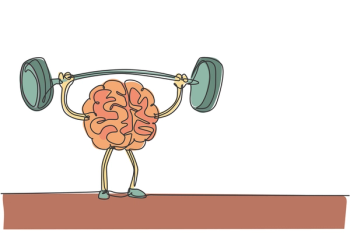
- Nutritional Outlook Vol. 27 No. 7
- Volume 27
- Issue 7
The future of sports nutrition is inclusive, integrative, and individualized
How the sports nutrition category is changing and what that means for manufacturers.
A significant transformation is underway in the evolving world of health and wellness: consumers are adopting active lifestyles and revolutionizing their approach to sports focused nutritional supplements. This shift moves beyond the traditional athlete-centered model, as mainstream users now seek comprehensive health benefits beyond muscle gain and optimizing performance. Performance goals can range from regaining the strength to pick up a grandchild or running a marathon to competing for a gold medal. The size of the stage may vary, but the feeling of accomplishment remains the same.
Learning from the sports medicine world, we can apply key insights to everyday life. In its simplest form, the body is designed for survival but not necessarily for peak performance. Anytime we push our bodies to achieve at a high level – whether in physical or cognitive performance – there is a biological cost. To perform at our best, we must provide our bodies with the nutrients needed to fuel these extra demands and recover from these activities. Nutritional supplements can be an answer to fueling greatness and taking you from good to great.
Historically, athletes and weightlifters dominated the sports nutrition market, chasing gains in muscle mass, strength, and recovery speed with trusted allies like creatine and protein powders. Creatine, once the darling of locker rooms, is now appreciated for its cognitive benefits and potential to enhance brain and overall muscle health as we age. Protein supplements have transcended their traditional role, becoming key players in weight management and overall nutrition.
But today, a new wave of health-conscious individuals – from weekend warriors to everyday fitness enthusiasts – is rising. They’re not just looking to build muscle or shave seconds off their race times; they’re aiming for a balanced approach to health, focusing on things like weight management, mood support, metabolic health, as well as bone and joint care.
What’s driving this revolution is a growing awareness that health is multifaceted. Today’s consumers understand that true wellness encompasses physical strength, mental clarity, emotional stability, and long-term vitality. They are proactive, informed, and discerning, seeking products that deliver a spectrum of benefits rather than one-dimensional solutions. Empowering consumers with the knowledge to make informed decisions is crucial. Education is the key to navigating the sea of supplements and finding the right fit for individual health goals. It’s a shared responsibility between supplement companies and health professionals to provide clear, evidence-based information and foster a culture of transparency and trust, which the demand has never been higher for.
Third-party certification, such as the NSF-Certified for Sport program, has become a beacon of reassurance for consumers. This certification guarantees that supplements contain the highest quality ingredients in a form the body can utilize, and are free from pesticides, heavy metals, and substances banned for competition providing peace of mind for competitive athletes and health enthusiasts alike and a secure foundation for one’s own wellness journey.
As the distinction between athlete and active lifestyle consumer fades, the supplement industry is catching on. Companies are innovating and creating products that cater to a wide array of health goals – from enhancing metabolic health to supporting mental well-being, the future of sports nutrition is inclusive, integrative, and individualized.
The evolution of sports nutrition represents a new era that embraces a holistic approach to health and empowers individuals to achieve their best selves. This is a time for informed choices, holistic health goals, and an unwavering commitment to quality and transparency. The future of sports nutrition is bright, and the possibilities are limitless for those ready to embark on the journey toward comprehensive wellness.
About the Author
Joel Totoro is a registered dietitian and director of sports science at Thorne where he oversees human performance integration with Thorne’s sports partners. Totoro became the first full-time sports dietitian in professional sports serving eight years as team dietitian for the New England Patriots directing all aspects of the team’s nutritional needs. He was also University of Michigan’s sports dietitian and served as the assistant chief dietitian at St. Luke’s Hospital in Massachusetts, specializing in trauma nutrition. He holds a Bachelor of Science in Allied Health-Dietetics from the University of Connecticut.
Articles in this issue
over 1 year ago
What is a low-FODMAP diet?over 1 year ago
What is leaky gut syndrome?over 1 year ago
Collagen crazeover 1 year ago
Built to last: Formulating for enduranceNewsletter
From ingredient science to consumer trends, get the intel you need to stay competitive in the nutrition space—subscribe now to Nutritional Outlook.





